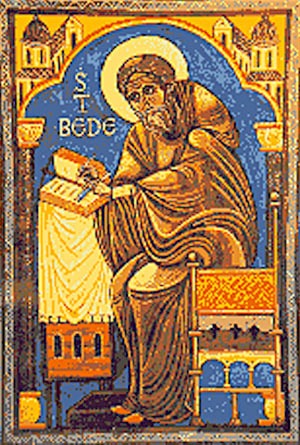The Eleatic sect was founded by Xenophanes (570-480 B.C.), who was conspicuous for his attacks upon the cosmologic and theogonic fables of Homer and Hesiod. Xenophanes declared that God was “one and incorporeal, in substance and figure round, in no way resembling man; that He is all sight and all hearing, but breathes not; that He is all things, the mind and wisdom, not generate but eternal, impassible, immutable, and rational.” Xenophanes believed that all existing things were eternal, that the world was without beginning or end, and that everything which was generated was subject to corruption. He lived to great age and is said to have buried his sons with his own hands. Parmenides studied under Xenophanes, but never entirely subscribed to his doctrines. Parmenides declared the senses to be uncertain and reason the only criterion of truth. He first asserted the earth to be round and also divided its surface into zones of hear and cold.
Melissus, who is included in the Eleatic school, held many opinions in common with Parmenides. He declared the universe to be immovable because, occupying all space, there was no place to which it could be moved. He further rejected the theory of a vacuum in space. Zeno of Elea also maintained that a vacuum could not exist. Rejecting the theory of motion, he asserted that there was but one God, who was an eternal, ungenerated Being. Like Xenophanes, he conceived Deity to be spherical in shape. Leucippus held the Universe to consist of two parts: one full and the other a vacuum. From the Infinite a host of minute fragmentary bodies descended into the vacuum, where, through continual agitation, they organized themselves into spheres of substance.
The great Democritus to a certain degree enlarged upon the atomic theory of Leucippus. Democritus declared the principles of all things to be twofold: atoms and vacuum. Both, he asserted, are infinite–atoms in number, vacuum in magnitude. Thus all bodies must be composed of atoms or vacuum. Atoms possessed two properties, form and size, both characterized by infinite variety. The soul Democritus also conceived to be atomic in structure and subject to dissolution with the body. The mind he believed to be composed of spiritual atoms. Aristotle intimates that Democritus obtained his atomic theory from the Pythagorean doctrine of the Monad. Among the Eleatics are also included Protagoras and Anaxarchus.
Socrates (469-399 B.C.), the founder of the Socratic sect, being fundamentally a Skeptic, did not force his opinions upon others, but through the medium of questionings caused each man to give expression to his own philosophy. According to Plutarch, Socrates conceived every place as appropriate for reaching in that the whole world was a school of virtue. He held that the soul existed before the body and, prior to immersion therein, was endowed with all knowledge; that when the soul entered into the material form it became stupefied, but that by discourses upon sensible objects it was caused to reawaken and to recover its original knowledge. On these premises was based his attempt to stimulate the soul-power through irony and inductive reasoning. It has been said of Socrates that the sole subject of his philosophy was man. He himself declared philosophy to be the way of true happiness and its purpose twofold: (1) to contemplate God, and (2) to abstract the soul from corporeal sense.
The principles of all things he conceived to be three in number: God, matter, and ideas. Of God he said: “What He is I know not; what He is not I know.” Matter he defined as the subject of generation and corruption; idea, as an incorruptible substance–the intellect of God. Wisdom he considered the sum of the virtues. Among the prominent members of the Socratic sect were Xenophon, Æschines, Crito, Simon, Glauco, Simmias, and Cebes. Professor Zeller, the great authority on ancient philosophies, has recently declared the writings of Xenophon relating to Socrates to be forgeries. When The Clouds of Aristophanes, a comedy written to ridicule the theories of Socrates, was first presented, the great Skeptic himself attended the play. During the performance, which caricatured him seated in a basket high in the air studying the sun, Socrates rose calmly in his seat, the better to enable the Athenian spectators to compare his own unprepossessing features with the grotesque mask worn by the actor impersonating him.

Moe is the founder of GnosticWarrior.com. He is a father, husband, author, martial arts black belt, and an expert in Gnosticism, the occult, and esotericism.


